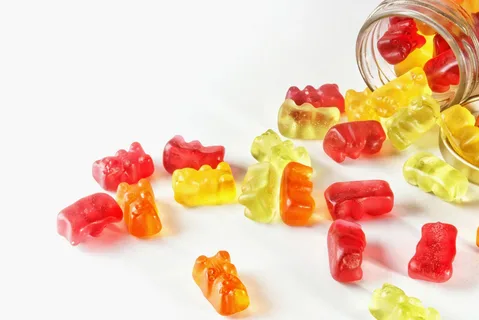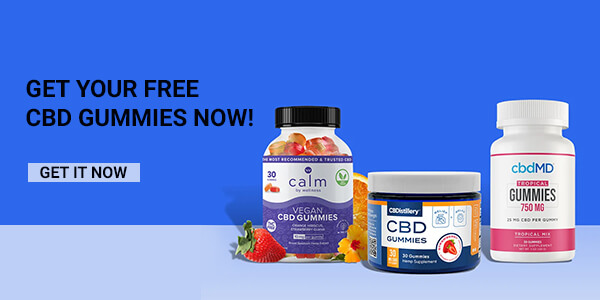CBD gummies might have therapeutic effects on the body and help with pain, sleep, and inflammation. Besides, the gummies may be uplifting, although they do not have the ‘high’ effect linked to THC.
Unlike THC, a cannabinoid in hemp plants, CBD, including Cannabidiol gummies, does not have a ‘high’ effect that would lead to psychosis. CBD gummies are non-psychoactive, but they may have uplifting effects like other CBD delivery methods. Besides, early studies show that CBD in its various delivery methods, including CBD gummies, may help with sleep, pain, and inflammation, among other health challenges. Still, more studies are needed to prove the efficacy of CBD-infused gummies for health-related benefits. Herein discussed are the effects of CBD infused gummies on the body.
CBD Gummies are Non-Psychoactive
Schlienz et al. (2018) described THC as the psychoactive chemical substance in cannabis plants, primarily marijuana, which can also be found in hemp. CBD does not have the same psychotic effects on the body since McAllister et al. (2015) and others established that it is non-psychoactive (meaning that CBD does not make a person high or facilitate his psychosis or loss of sense of reality). One of the many reasons people find CBD effective is that it is non-psychoactive and will not make a person lose his sense of reality.
CBD Gummies for Uplifting Effects
CBD is said to have some uplifting effects, and it is no wonder that people go for this cannabinoid. For instance, while commenting on CBD, Piomelli & Russo (2016) stated that CBD may have uplifting effects, primarily because of the additional compounds, including terpenes and flavonoids, and you may want to explore the cannabinoid for these very effects. Besides, Silote et al. (2019) recorded that CBD seemed to be better than conventional antidepressants, suggesting that the cannabinoid may help with depression and anxiety. Since CBD gummies deliver CBD, they may uplift your moods or fight depression. Still, it is worth noting that CBD studies are limited, and there is a need for further research to prove that the cannabinoid may indeed help with anxiety.
CBD Gummies May Help One Have Better Sleep
Most CBD fans would agree that CBG gummies are among the many sleep supplements on the market. Melatonin is known as the sleep hormone, and most CBD gummy companies that advertise CBD as a sleep supplement now feature the hormone in CBD gummies. Does this mean that you can comfortably ride on CBD gummies and other delivery methods for this cannabinoid to improve your sleep? According to Shannon et al. (2019), CBD may help sleep. There is insufficient scientific evidence to prove that CBD gummies can make good sleep supplements, suggesting that one needs to take it slow on the gummies.
Can CBD Gummies Help You Manage Pain?
While some people take Cannabidiol infused sweets for fun, most CBD fans believe the cannabinoid may help them with this or that health challenge, and one of them is pain. In its different delivery methods, CBD seems to make a good pain killer. Does this mean that you should substitute your medication with CBD sweets and other delivery methods? Vučković et al. (2018) reviewed various CBD studies from 1975 through March 2018 and commented that CBD might help with various chronic pains, including cancer, neuropathic, and fibromyalgia pains. Mlost et al. (2020) also established that CBD might be great for inflammation, pain, and osteoarthritis. While all this is promising, no studies have narrowed it down to CBD gummies for pain, and until we have such research, we cannot recommend CBD gummies for pain management.
CBD Gummies for Stress and Depression
CBD gummies for stress, anxiety, and depression may sound unlikely, but it is worth noting that people still take the cannabinoid for this very reason. Major life changes such as the loss of a job or spouse, economic hardships, and long-term illnesses are many stressors people have to contend with. Do CBD effects include stress and depression management? García-Gutiérrez et al. (2020) found that CBD seemed to help with anxiety, stress, and depression. Earlier, Elms et al. (2019) noted that CBD might help PTSD patients manage their condition better. Because CBD gummies deliver CBD supplements, you might feel more inclined to try them for mental issues, but it is worth noting that more studies on the gummies are needed to prove that they may indeed help with stress.
CBD Gummies for Fighting Inflammation
Inflammation is a naturally harmless process because it is the body’s response mechanism to external factors. However, spontaneous inflammation is uncontrollable and spreads fast, even affecting immune cells, eventually affecting immunity. Meanwhile, different treatment options are available for the cannabinoid, but none comes without side effects. With much emphasis on natural methods of managing health challenges, you may want to try CBD delivery methods, including gummies, for inflammation. Is the cannabinoid efficacious for inflammation management? Hammell et al. (2016) reported that CBD might help with inflammation, and since CBD gummies are CBD carriers, many have embraced them for managing inflammation.
Are CBD Gummies an Alternative for Treatment?
CBD gummies promise to help with pain, sleep, inflammation, and stress, among other health challenges. Besides, the cannabinoid is non-psychoactive, meaning that it will not lose his sense of reality as THC. Does this make CBD, including CBD gummies, alternative treatment options? There is not much we are yet to know about the cannabinoid, primarily because what we already know is only a handful. Besides, CBD studies are limited, and the existing research has its fair share of challenges. Do not replace your medication with CBD edibles or other delivery methods for the cannabinoid. If you need to take CBD, you should consult your doctor at least to know how to dose the cannabinoid, if there are possible CBD-drug interactions, and how to go about them,
Conclusion
Unlike THC, and CBG, CBD, including CBD infused sweets, are non-psychoactive and does not cause a ‘high’ effect. Still, you can expect some uplifting effects from the cannabinoid, hence its application in improving moods. Early research also suggested that CBD gummies may help with pain, inflammation, and stress, but more studies are needed.
References
Elms, L., Shannon, S., Hughes, S., & Lewis, N. (2019). Cannabidiol in the Treatment of Post-Traumatic Stress Disorder: A Case Series. Journal of alternative and complementary medicine (New York, N.Y.), 25(4), 392–397.
García-Gutiérrez, M. S., Navarrete, F., Gasparyan, A., Austrich-Olivares, A., Sala, F., & Manzanares, J. (2020). Cannabidiol: a potential new alternative for treating anxiety, depression, and psychotic disorders. Biomolecules, 10(11), 1575.
Hammell, D. C., Zhang, L. P., Ma, F., Abshire, S. M., McIlwrath, S. L., Stinchcomb, A. L., & Westlund, K. N. (2016). Transdermal cannabidiol reduces inflammation and pain-related behaviors in a rat model of arthritis. European journal of pain (London, England), 20(6), 936–948.
McAllister, S. D., Soroceanu, L., & Desprez, P. Y. (2015). The antitumor activity of plant-derived non-psychoactive cannabinoids. Journal of neuroimmune pharmacology, 10(2), 255-267.
Mlost, J., Bryk, M., & Starowicz, K. (2020). Cannabidiol for pain treatment: focus on pharmacology and mechanism of action. International journal of molecular sciences, 21(22), 8870.
Piomelli, D., & Russo, E. B. (2016). The Cannabis sativa versus Cannabis indica debate: an interview with Ethan Russo, MD. Cannabis and cannabinoid research, 1(1), 44-46.
Schlienz, N. J., Lee, D. C., Stitzer, M. L., & Vandrey, R. (2018). The effect of high-dose dronabinol (oral THC) maintenance on cannabis self-administration. Drug and alcohol dependence, 187, 254-260.
Shannon, S., Lewis, N., Lee, H., & Hughes, S. (2019). Cannabidiol in Anxiety and Sleep: A Large Case Series. The Permanente journal, 23, 18–041.
Silote, G. P., Sartim, A., Sales, A., Eskelund, A., Guimarães, F. S., Wegener, G., & Joca, S. (2019). Emerging evidence for the antidepressant effect of cannabidiol and the underlying molecular mechanisms. Journal of chemical neuroanatomy, 98, 104-116.
Vučković, S., Srebro, D., Vujović, K. S., Vučetić, Č., & Prostran, M. (2018). Cannabinoids and pain: new insights from old molecules. Frontiers in pharmacology, 1259.
Kristina Shafarenko is a relationship and health and wellness psychologist and a part-time freelance lifestyle writer covering health and fitness, sex, sexual wellness, and relationships. When she’s not writing, you can find her planning her next getaway, taste-testing every coffee spot in sight, and lounging at home with her cat, Buddy.
- CBD Oil for Cats: How It’s Different than Dogs - February 15, 2023
- What is a CBD disposable vape pen? - October 25, 2022
- What happens when you use a CBD bath bomb - October 25, 2022







